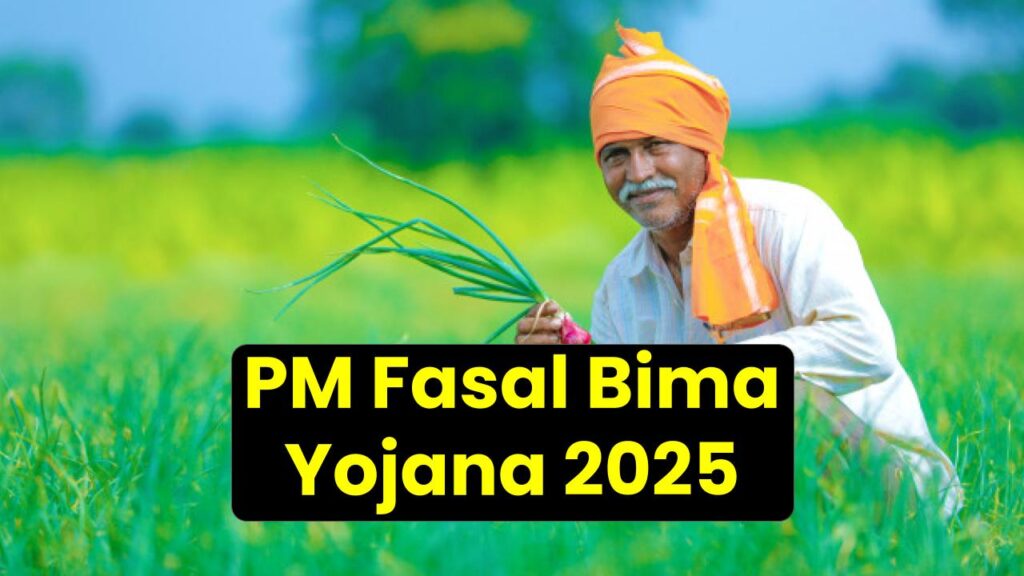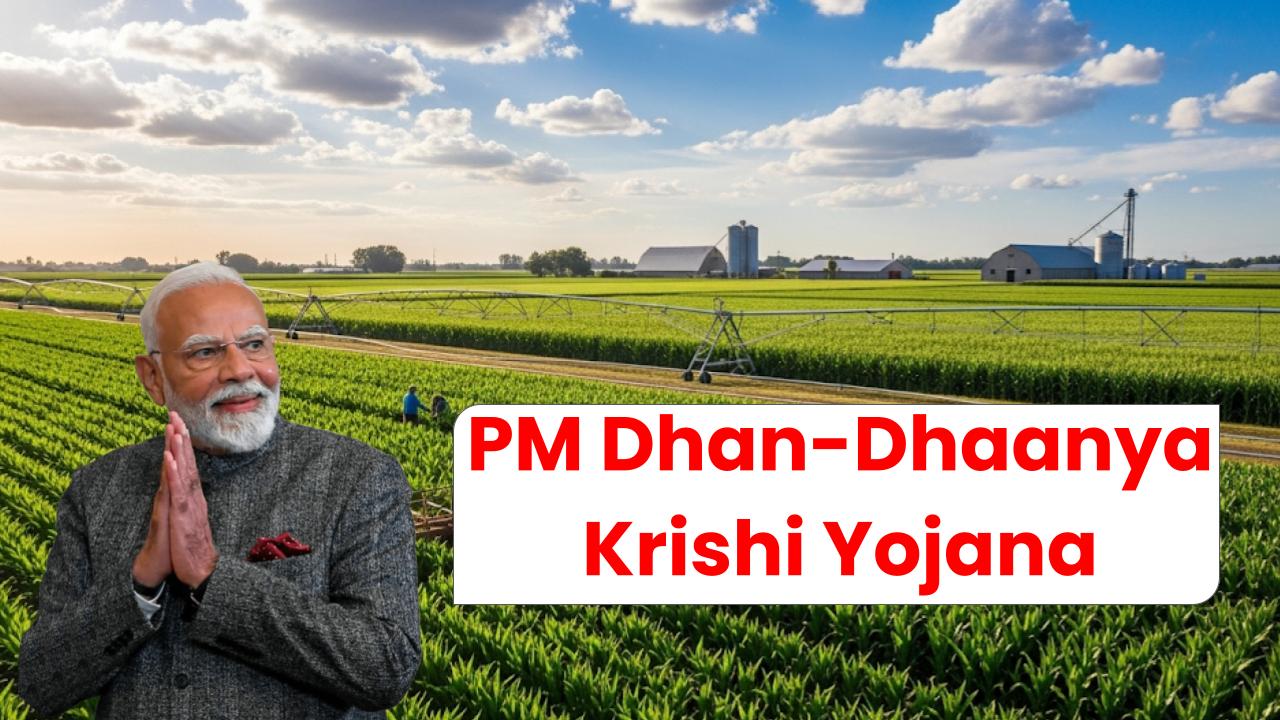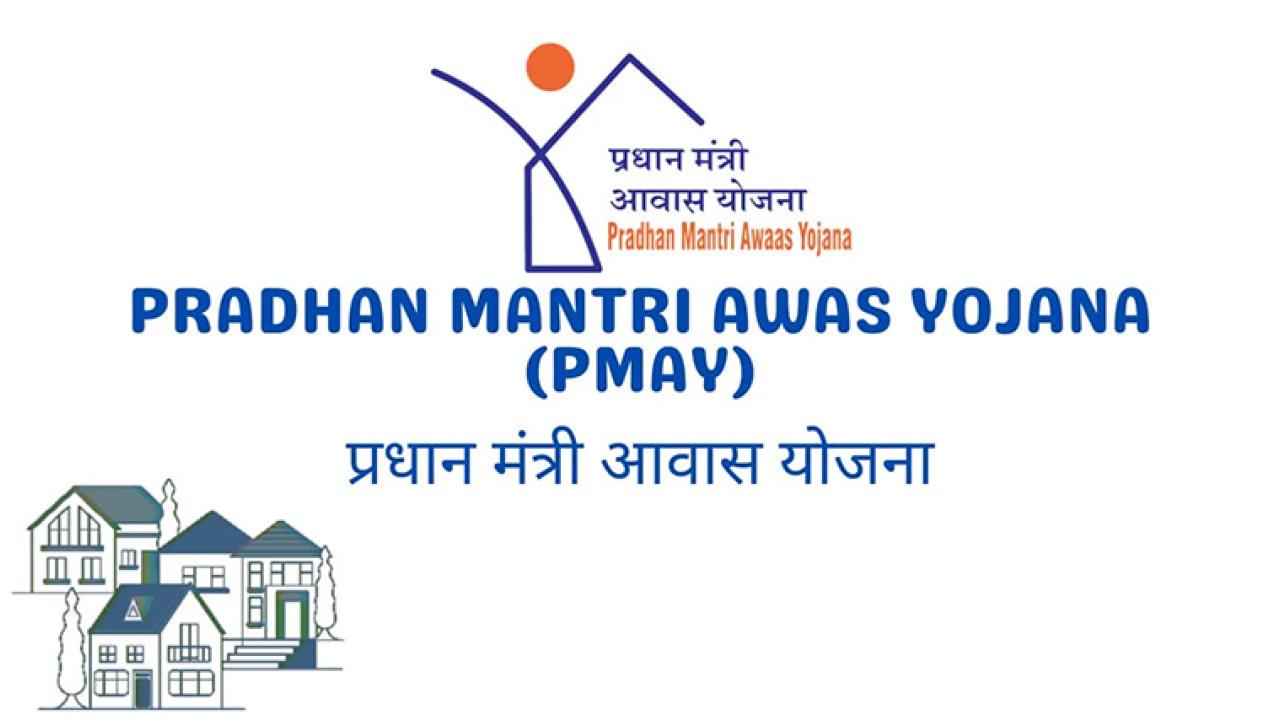PM Fasal Bima Yojana 2025 Last Date for Kharif Crops is July 31, 2025. If you’re a farmer or someone helping farmers grow, you better mark that date in red on your calendar. This deadline isn’t just some red tape—it’s your golden ticket to securing your crops against unpredictable weather, pests, and market instability. And let’s be real: with climate change acting up and floods and droughts being the new norm, crop insurance isn’t just smart—it’s essential.

The Pradhan Mantri Fasal Bima Yojana (PMFBY) has been a game-changer for millions across India. It was launched back in 2016 to provide financial support to farmers suffering crop loss or damage due to natural calamities. Think of it as a safety net that keeps you standing tall even when the skies (literally) fall. If you’re farming Kharif crops this season, now’s the time to get on board.
PM Fasal Bima Yojana 2025
| Aspect | Details |
|---|---|
| Last Date to Apply | July 31, 2025 (Some states may have earlier deadlines like July 15) |
| Eligible Crops | Paddy, maize, soybean, cotton, pulses, etc. |
| Premium for Farmers | 2% of sum insured for Kharif crops |
| Coverage Includes | Drought, floods, pests, disease, hailstorms, fire, post-harvest losses (within 14 days) |
| Claim Filing Deadline | Within 72 hours of crop damage |
| Claim Settlement Timeline | Within 60 days via Direct Benefit Transfer (DBT) |
| Where to Apply | pmfby.gov.in or CSC Centers |
The PM Fasal Bima Yojana 2025 Last Date for Kharif Crops is more than just a deadline—it’s a lifeline. With the climate throwing curveballs, pests adapting faster than we can react, and prices going up and down like a rollercoaster, farmers need solid protection. PMFBY offers that, with minimal cost and maximum benefit.
What is PMFBY, and Why Should You Care?
If you’re new to the farming scene or just haven’t paid attention before, PMFBY stands for Pradhan Mantri Fasal Bima Yojana. It’s like getting a weather-proof jacket for your farm. The government partners with insurance companies to offer coverage at dirt-cheap premiums (think 2% for Kharif crops). Compare that with typical insurance plans, and it’s a no-brainer.
It’s funded by both central and state governments, so you only pay a small part. It’s one of the most farmer-friendly insurance schemes out there. And guess what? If you’re a loanee farmer (you’ve taken a crop loan), you’re already enrolled unless you opt out. For non-loanee farmers, registration is voluntary—but totally worth it.
Why You Absolutely Shouldn’t Miss the Deadline
Here’s the deal. Missing the July 31 deadline is like ignoring a seatbelt in a crash. You hope for the best, but if something goes south, there’s nothing to catch you. Farming is a risky business. From unpredictable rainfall to pest attacks, anything can tank your harvest.
And the worst part? No insurance means zero compensation. You’ll have to shoulder the loss all on your own. But if you’re covered under PMFBY, you could recover up to 100% of your input cost. That’s money back in your pocket, and peace of mind in your head.
What Crops Are Covered?
The PMFBY scheme covers major Kharif crops including:
- Paddy (rice)
- Maize
- Cotton
- Soybean
- Groundnut
- Bajra and Jowar
- Pulses (Tur, Urad, Moong, etc.)
You can get a full list by checking your state’s agriculture department website or the official PMFBY portal.
Step-by-Step Guide to Register for PMFBY
Let’s break it down real simple:
Step 1: Get Your Documents Ready
You’ll need:
- Aadhaar Card
- Land Ownership Proof (Fard/Khatauni)
- Bank Passbook
- Sowing Declaration
If you’re a loanee farmer, your bank usually handles this. But it’s good to double-check. Non-loanee farmers, this step’s all on you.
Step 2: Choose Your Channel
You can apply via:
- pmfby.gov.in
- Mobile App: Crop Insurance (available on Android)
- Common Service Centers (CSCs)
- Authorized bank branches
Step 3: Pay Your Premium
Premiums are super affordable:
- Kharif Crops: 2%
- Rabi Crops: 1.5%
- Commercial/Horticulture: 5%
Your premium amount depends on the sum insured, which is based on your landholding and the crop.
Step 4: Get Your Receipt
Make sure you get an acknowledgment or receipt. It’s your proof of enrollment. No receipt = No insurance. Period.
What Happens After Enrollment?
Once you’re enrolled:
- Your crop is insured for natural calamities.
- You must inform within 72 hours in case of crop damage.
- Surveyors will inspect the damage.
- Your claim is processed and paid within 60 days directly to your bank account.
Real Talk: Is It Worth It?
Short answer? Heck yes.
According to the Ministry of Agriculture and Farmers Welfare, over Rs 1.48 lakh crore has been disbursed to farmers as compensation under PMFBY since its inception. That’s no small change. The claim settlement ratio is well over 85%, which beats a lot of private insurance plans.
Here’s a real-world example:
- Ramesh Yadav from Uttar Pradesh insured his paddy crop in 2023. Unseasonal rain washed out his harvest. His claim? Settled in 45 days. He got Rs 32,000 back—which covered his seeds, fertilizers, and part of his labor cost.
Common Mistakes to Avoid
- Missing the deadline (duh)
- Wrong crop name or land details
- Not reporting damage within 72 hours
- No receipt or acknowledgment
Stay sharp. Mistakes can delay or cancel your claim.
FAQs
Q1. Can tenant farmers apply?
Yes, but they must have a valid lease agreement and landowner consent.
Q2. What if I grow multiple crops?
You can insure all of them—just declare each separately in your application.
Q3. Is PMFBY mandatory?
For loanee farmers, yes (unless they opt out in writing). For non-loanees, it’s voluntary.
Q4. Can I cancel my application?
Yes, but only before the deadline. After July 31, you’re locked in for the season.
Q5. Where can I check claim status?
Log in at pmfby.gov.in or visit your local bank branch/CSC.









